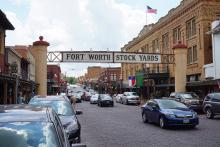First Electric Cooperative Making Big Progress Delivering Affordable Fiber Service in Arkansas
First Electric Cooperative – and its broadband subsidiary Connect2First – are making major inroads on their quest to deliver affordable fiber Internet service to long-neglected portions of Arkansas.
Buoyed by an historic stretch of federal funding, the cooperative says it’s on target to deliver up to 2.5 gigabit per second service to 72,000 locations by the end of 2024.
Connect2First officials say they’ve deployed 4,371 miles of fiber across 18 counties in the southeastern part of the state, just outside of the state capital in Little Rock, delivering speeds significantly higher than seen in more urban, populous areas. The resulting service is also a notable step up in speed from regional monopolies like AT&T and Optimum, which see little market incentive to upgrade lagging networks or compete on price.
Connect2First residential customers have the choice of three tiers of service: a symmetrical 200 megabit per second (Mbps) connection for $60 a month; a symmetrical 700 Mbps connection for $60 a month; or a symmetrical gigabit per second (Gbps) service tier for $100 a month. The company’s tiers feature no service caps, hidden fees, or long term contracts.

First Electric Cooperative, headquartered in Jacksonville, Arkansas, began in 1938 with just 3 employees and 150 members. Now with 94,000 electricity customers, it’s one of the largest cooperatives in the country, and the second biggest cooperative in the state of Arkansas.



